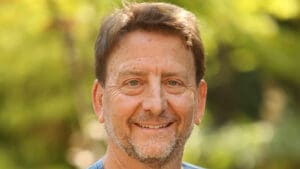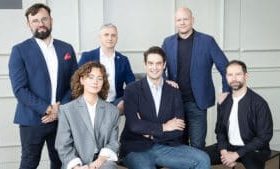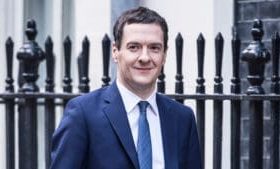
John Chipponeri is a retired Chevron executive, coach, and endurance athlete whose career has been defined by leadership, resilience, growth and service.
Raised in Ceres, a small town in Central California, he grew up in a large Sicilian family where hard work and community values shaped his outlook. Excelling in both academics and sport, he graduated as valedictorian of his high school and earned recognition as MVP on the football field while leading his baseball team as catcher.
In 1984, Chipponeri graduated with honours from the University of California, Berkeley, with a degree in Mechanical and Petroleum Engineering. He was inducted into Tau Beta Pi, the national engineering honour society, and received the Outstanding Petroleum Engineering Student Award. He later added an MBA to his credentials, strengthening his ability to bridge technical expertise with business leadership.
His professional journey with Chevron spanned more than three decades and took him around the world. He advanced through roles including Facilities Engineer, Process Safety Engineer, Field Superintendent, Project Engineer, Business Manager, and Senior Project Manager. He oversaw projects worth up to $3 billion, managing multinational teams across the United States, Indonesia, and Australia.
After semi-retiring in 2017, Chipponeri turned his focus to personal development, coaching, and endurance sport. He has completed over a dozen half-ironman races and swam the 13-mile Rottnest Channel in Australia. Today, he works with men’s groups, recovery programmes, and athletes, blending leadership, sport, and the Enneagram to help others build resilience and authentic connection.
Q&A with John Chipponeri
Can you tell us about your early years and what influenced you most?
I grew up in Ceres, a small farming town in Central California, in a big Sicilian family. Being the youngest of four, I quickly learnt the value of hard work. My parents and community taught me that perseverance and service mattered. I poured myself into both school and sport. I graduated as valedictorian and was MVP of the football team, while also leading my baseball team. Out of my entire class, only three of us went to university, and I was proud to be one of them.
What led you to study engineering at UC Berkeley?
As a 14-year old I ran across a book that said if you are good and match and science then you should be an engineer. At Berkeley I studied Mechanical and Petroleum Engineering, graduating with honours in 1984. I was inducted into Tau Beta Pi and even received the Outstanding Petroleum Engineering Student Award. More than the awards, though, Berkeley taught me how to ensure that I truly understood the problem at hand, this made finding the solution more straightforward. Problems rarely have easy solutions, and I learnt how to approach them with curiosity and persistence.
How did your career at Chevron begin?
I started as a Facilities Engineer in Bakersfield, California. From there, I moved through different roles and locations—Louisiana, Michigan, Indonesia, Texas, and finally Australia. Each step added a new layer of responsibility. I became a Process Safety Engineer, then a Field Superintendent, later a Project Engineer and Business Manager. Eventually, I was a Senior Project Manager leading projects worth up to $3 billion.
What was one of the biggest lessons from leading such large projects?
Large projects are daunting on paper. The numbers are massive, the stakes are high. But when you break it down, it always comes back to people. Processes are critical, of course, but trust and leadership are what carry a project across the finish line. Building trust across teams, especially international ones, was both the challenge and the reward.
Your work took you across the world. How did that shape you?
Working in Indonesia and later Australia broadened my perspective. You see first-hand how culture and context influence decisions. Leadership in Jakarta looks different from leadership in Houston, but the values—respect, clarity, accountability—are the same. Those experiences made me a more flexible and empathetic leader.
Alongside your career, you were active as a father and coach. How did that balance play out?
I coached my sons’ sports teams from when they were five until their early teens—soccer, swimming, baseball, basketball, and flag football. It was demanding at times, but deeply rewarding. Parents would often tell me their kids wanted to play on my teams because they learned the game andit was fun. That meant a lot to me. Both of my sons are now engineers and business leaders themselves, which feels like things came full circle.
You also became involved in endurance sports. How did that come about?
In my 40s I got hooked on triathlons. I ended up completing over a dozen half-ironmans. One of the highlights of my life was swimming the 13-mile Rottnest Channel off the coast of Perth, Australia. It was a true test of body and mind. Endurance sport teaches you resilience—you learn that your mindset often matters more than your muscles.
After retiring from Chevron, what direction did you take?
I semi-retired in 2017 and shifted focus to coaching and personal growth. I studied the Enneagram in depth and I’m now completing my Narrative Enneagram Teacher Certification. Today, I work with men’s groups and recovery programmes. Men often feel they need to carry everything alone, but I’ve seen how growth happens when they have spaces to share and connect.
How do you see your role now compared to when you were managing billion-dollar projects?
The settings are different, but the goal is similar: helping people succeed. Back then it was about leading teams through complex engineering challenges. Now it’s about guiding individuals to build resilience, find balance, and connect with their authentic selves. In both, trust and integrity are the foundation.
What keeps you motivated today?
I live in San Rafael, California, and stay active with yoga, hiking, biking, and pickleball. Coaching, mentoring, and supporting recovery work keep me engaged. What motivates me is simple: helping people grow. Whether it’s a billion-dollar project or a men’s group, I try to live by the same values—hard work, integrity, and service.
Read more:
John Chipponeri: From Chevron to Coaching and Men’s Work






